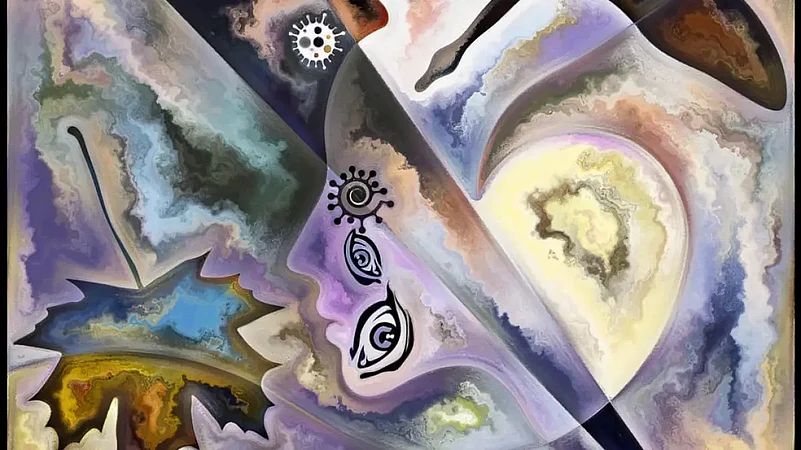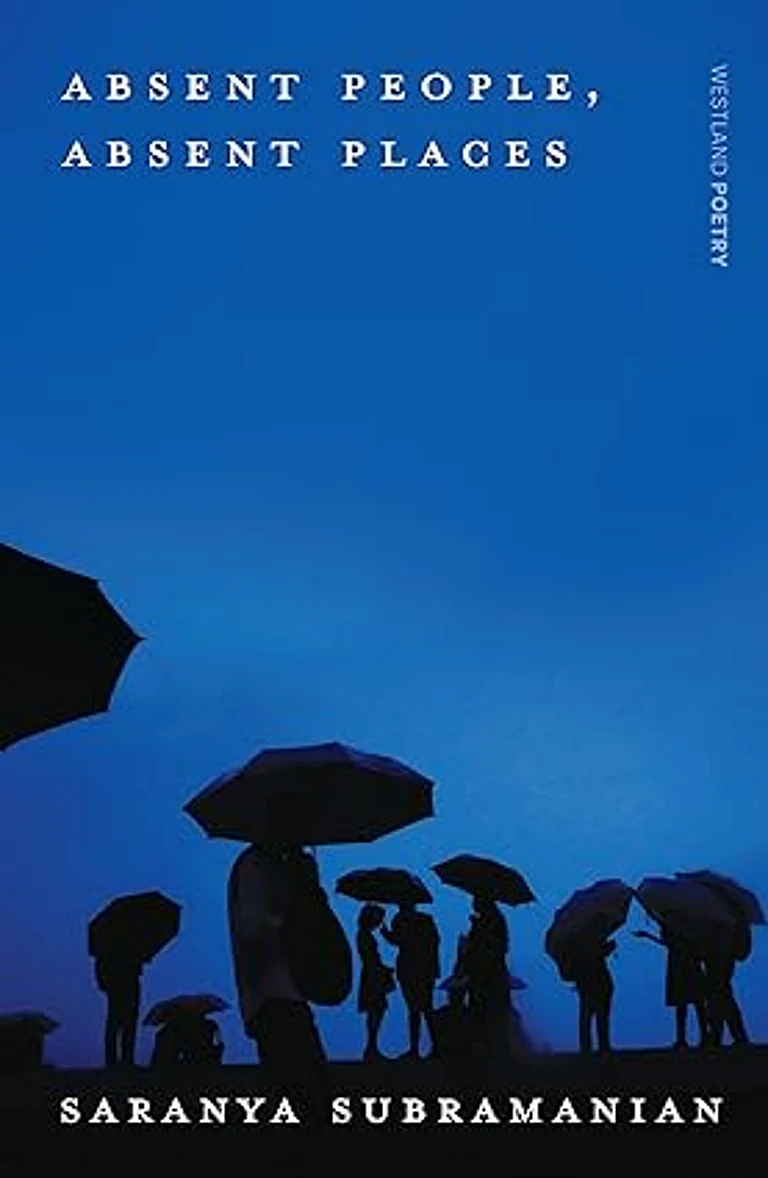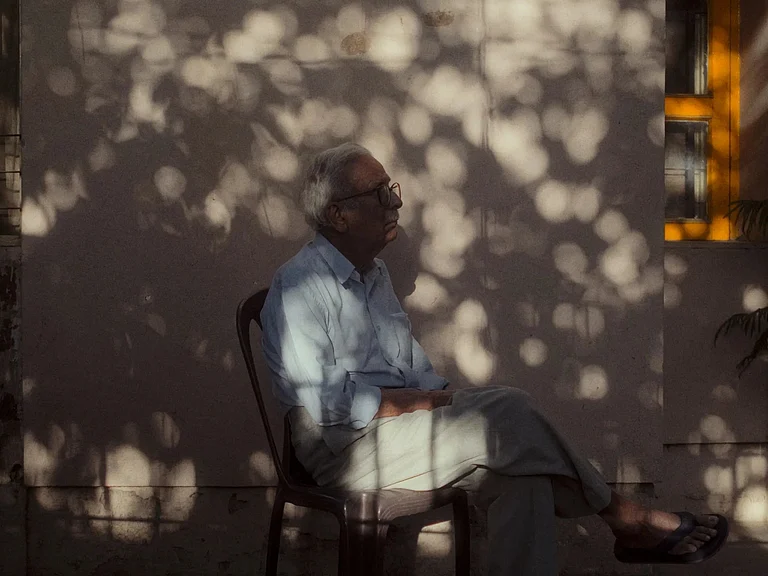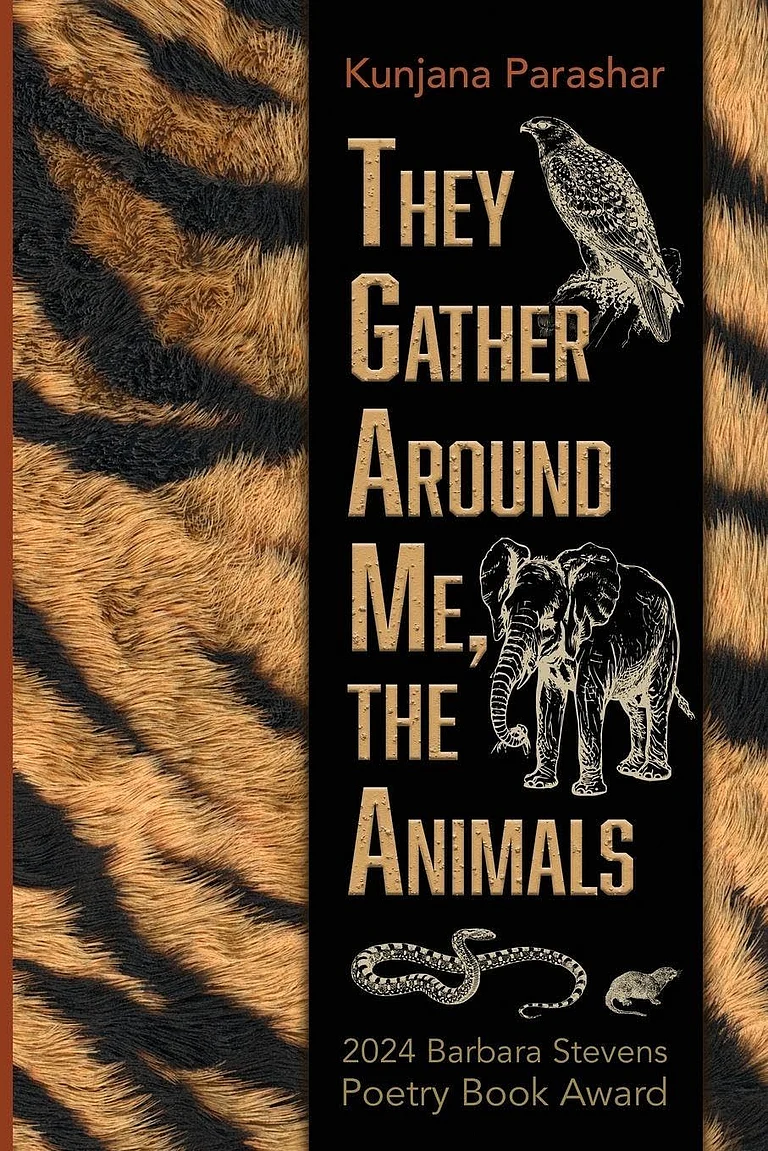As the world came to a standstill in wake of the Covid-19 pandemic, poets and wordsmiths too were locked inside their houses. However, despite their physical confinement they didn’t let the pandemic impact their poet and these literary figures spent their time re-reading and revisiting the literature. While some chose to continue to write and finish their books, others used the pandemic to reflect on themes of grief, sorrow, longingness, churning out new poems telling of the times we are living in.
“I decided, to treat this period as an extended residency, largely of keeping to myself, sitting at my desk, writing and reading and re-reading. I went back to the books which had different kinds of emotional meanings, such as The Wind in the Willows which is a childhood classic that I have always loved I re-read. Besides this while, I celebrated new poetry but at the same time, I renewed my engagement with poetry I’ve known for a long-time including Paul Celan, Ruth Padel, Agha Shahid Ali, Ashok Vajpeyi, Mangalesh Dabral, and K Satchidanandan” poet Ranjit Hoskote told Outlook.
“I continued to translate, Amaru, Bilhana, and Mir Taqi Mir. I read Kedarnath Singh’s Akaal Mein Saaras and Dhoomil’s Sansad Se Sadak Tak, which I had not read before. Each of these poets has offered me reassurance in the poetic vocation, great consolation and the hope of healing during these trying times”, added Hoskote whose new poetry collection Hunchprose was released in 2021 during the pandemic.
“My book Hunchprose summons up questions that have been with me for a long time – such as home, belonging, displacement, cultural confluence, the climate catastrophe, the polarisation of society. Hunchprose is the survivor who is hostage, pilgrim, healer, someone who seeks to set right what is broken, to heal what has been traumatised without numbing it into apathy”, added Hoskote, who recently received 7th Mahakavi Kanhaiyalal Sethia Award for Poetry, at the 15th edition Jaipur Literature.
“Did I ever think
Heaven would ripen its doors
before their right season
expecting me to arrive
any day now my boots caked with mud
my coat weighed down with rain” – Hunchprose, Ranjit Hoskote
The poet and activist Meena Kandasamy chose pandemic to collect her poems written in the last decade and put them together as a book. “I had sort of stepped away from poetry after the publication of my last book of poems (Ms Militancy, 2010) but the pandemic shifted all our lives and made so many aspects of it unrecognizable. For me, when the second wave hit the UK, I decided to shift with my little children to India. We wanted to be in a place that felt easier. Because of this move, I was forced to sort my belongings, diaries, notebooks, and keep some of it, and decide what to do with the rest” Meena told Outlook during the Jaipur Literature Festival.
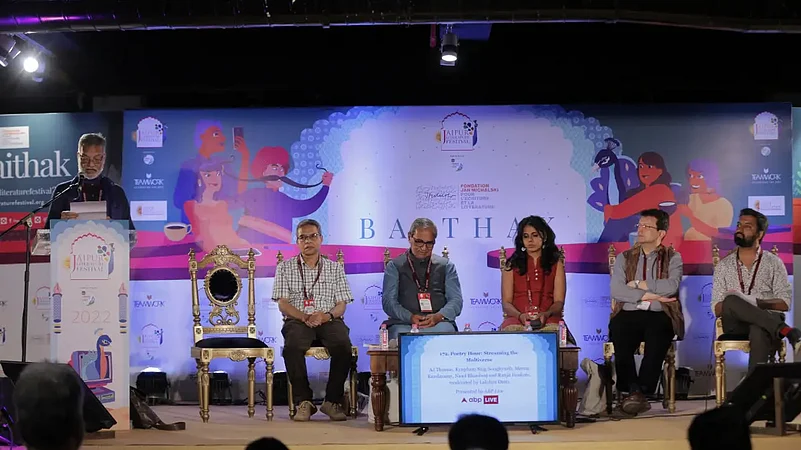
“I wrote a poem India Is My Country about the callous manner in which deaths did not even have the chance to be mourned properly. The pandemic was also when the Hathras atrocity happened, so I responded to it through the poem Rape Nation” added Meena, whose readings during the pandemic included Ilya Kaminsky, Claudia Rankine, Natalie Diaz, Tishani Doshi, Ranjit Hoskote, among many others.
“We mourn for the dead; we mourn for our numbness.
We mourn for the lost pride that let us say each day,
India is my country, to which we now feebly add,
my country is a crematorium,” excerpts from, India Is My Country, Meena Kandasamy, April 2021
Pandemic not only inspired poets to write about the situations around them but also offered first poetry books to many. Noted publisher and founder of Seagull books Naveen Kishore’s first book of poems ‘Knotted grief’, was published during the pandemic. The book which is based on stories from Kashmir also relates to compassion, grief and deep bewildering cruelties, public and private.
“I am not sure if I consciously responded to the pandemic as a poet. But there was a moment when I was listening to a 28-minute musical composition by my son Varun and since I write every day, listening to it led to some kind of a strange long poem, a long series of dreams going from one dream to another” Naveen Kishore told Outlook.
“During the pandemic, I could build a companionship - a friendship through the literary. I re-read my favourite poets, John Ashbery, Lucille Clifton and books by Hannah Arendt. The pandemic was the time when one could travel inward, ponder and there was a less urge to interact and rather accept the situation”, Naveen added.
“imagine then
The melancholy of the wind
As the innocent flower
Its petals exploding
Flying like missiles
Armed
For unwitting destruction”, Naveen Kishore, Knotted Grief, 2022
Jaipur based poet M Hasan whose second poetry book, ‘I am nobody’ came out this month too has references from the pandemic. “In the first year of the pandemic, while I was giving the finishing touches to my book, the emotions of loss, helplessness and grief were scattered around. We lost five precious lives in our families, one very young nephew. No count of some dear known people. I have included three poems Cold Worries, Covid 19. March of the Dead in the new book”, Hasan, a poet, social activist and a former Professor of Geography shared with Outlook.
“Last night I had a dream.
Nay, a nightmare screamed
All these nights
After visiting crowded hospitals
Overwhelmed by breathless patients
And desperate homes
Beseeching everyone and anyone
For saving their loved ones’ lives.
In my ears still ring
The helpless screams”, March Of The Dead, by M Hasan
Another Jaipur based poet Jagdeep Singh whose first poetry collection ‘My Epitaph’, was also released during the pandemic also see’s Covid-19 as an earth-shattering event, which poets cannot ignore in their expression.
“The fickleness and unpredictability of life have become more pronounced. As has the urgency of doing what one has to do. I read poetry every day. TS Eliot, Sylvia Plath, Philip Larkins, Ted Hughes, Dylan Thomas are among my favourite poets. The Oxford Book of Modern Verse always lies on my bedside table” shared Jagdeep.
“Let the time-capsule
of this year incorporate
the one thousand mile
march, braving
the heat and grime
disease and death
just to reach
the hearth and home”, excerpt from My Epitaph, Jagdeep Singh
Poet and photojournalist, who during the pandemic penned down Paper Lantern, poetic prose for MONK, does not see poetry as a response to a specific thing. “A poem on anything is a response to everything. A poem only responds to itself. A poem of a pandemic may say nothing about it in content but by a new poetic form. I read less. I mostly re-read. Pandemic itself was an act of re-reading of humanity's kindergarten books”, Himanshu Vyas told Outlook.
“It took me three months, to pen down Paper Lantern, which has a form I experienced while wandering in deserted Jaipur, that every scene would quickly dissolve into its memory. It felt like Haibun, a Japanese writing form where small prose ends with an epiphanous haiku. While making a photojournalistic record of the city in lockdown I would share small visual notes with Sophie James the editor of MONK magazine at Britain. The notes were a surreal patch of land where the sensory met their memory. Sophie suggested if I could pen a piece of poetic prose for MONK and that’s how 'Paper Lantern' happened” added Himanshu, Adjunct Professor of Photojournalism at Haridev Joshi University of Journalism and Mass Communication.
‘Every night
a hundred rounds of ambulances
were outnumbered
even if one lantern
was sailing in the sky
a dot, windswept
though small
but large enough for gaze
of one whole city
to rest ‘, excerpt from Paper Lantern, MONK, Himanshu Vyas
Speaking to Outlook on how poetry and pandemic are inseparable for poets, Ruth Padel, a Professor of Poetry at King’s College London opines, “We as poets absorb everything beautiful and sad around us. The pandemic (which is still ongoing) was one such incident. There was a universal sense of pain, longing, grief and hope across the world. The poets from all over the world absorbed these emotions and their poems became resonant reflections for our times. The Covid-19 also has also inspired many new poets to write poetry”.







